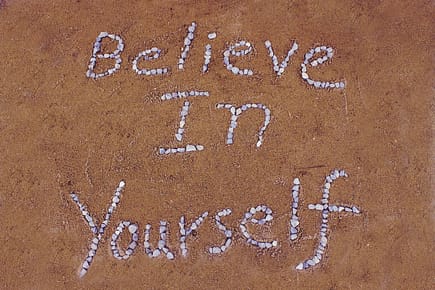Rebuilding Trust in Yourself After Failure
Failure stings. Not just because things didn’t go as planned, but because it often leaves a deeper wound: the loss of trust in yourself.
“How could I let this happen?”
“Maybe I’m not cut out for this.”
If these thoughts sound familiar, you’re not alone.
Rebuilding trust in yourself after a failure isn’t just possible — it’s one of the most courageous journeys you can take. And it starts with compassion, not criticism.
What Does It Mean to Lose Trust in Yourself?
When we fail — whether it’s a business, a relationship, a dream we poured our heart into — we often internalize it. We begin to doubt our judgment, our resilience, and even our worth.
This erosion of self-trust can show up in subtle ways:
- Second-guessing every decision.
- Avoiding opportunities that once excited you.
- Feeling stuck or disconnected from your own voice.
But here’s the truth: failure doesn’t mean you’re broken. It means you were brave enough to try.
The Psychology of Self-Trust
Self-trust isn’t just about confidence — it’s about reliability, alignment, and integrity with yourself. Psychologists define it as the ability to:
- Act in alignment with your values.
- Treat yourself with kindness during hardship.
- Keep promises you make to yourself.
Just like any other relationship, rebuilding trust with yourself takes consistency, patience, and presence.
Case Study: Maya’s Story
Maya was a talented graphic designer who left her corporate job to start her own design studio. She invested her savings, worked late nights, and gave everything she had. When her business didn’t survive the second year, she blamed herself entirely.
When Maya started coaching, she said, “I feel like I can’t trust myself to make good decisions anymore.”
Together, we:
- Reframed her failure as experience, not evidence of inadequacy.
- Identified limiting beliefs that were rooted in fear, not fact.
- Created small, achievable commitments to rebuild momentum.
After a few months, Maya didn’t just regain her confidence — she launched a new creative project, this time with balance and boundaries in place.
Steps to Rebuild Self-Trust After a Failure
Rebuilding trust takes more than motivational quotes — it takes gentle, consistent action. Here’s how to start:
- Acknowledge the Pain, Without Judgment
Failure hurts. Let yourself feel it fully without rushing to “fix” it. Suppressed emotions don’t disappear — they wait. - Practice Self-Compassion Like a Skill
Would you talk to a friend the way you speak to yourself? Probably not. Start practicing compassionate inner dialogue. - Reflect on What You’ve Learned — Truthfully
What worked? What didn’t? What would you do differently? Learning replaces shame with growth. - Recommit to Your Core Values
When you act in alignment with your values (not your fears), self-trust naturally rebuilds. - Take Small, Aligned Actions
Set micro-goals that are doable and aligned with your truth — not anyone else’s expectations.
Conclusion: Trust is a Practice, Not a Destination
Failure doesn’t get the final say — you do. Rebuilding trust in yourself isn’t about pretending the pain didn’t happen. It’s about owning your story and continuing forward with intention.
You are not your past mistakes. You are the person brave enough to rise after them.
🌱 If this resonates with you, I invite you to explore the Chapter Forward coaching experience. You don’t have to figure it all out alone. You’re already on your way. 🌱
Book Your Free Discovery Call!
✨ Coach Insights
As a coach, one of the most powerful shifts I witness is when someone reclaims belief in themselves after a setback. The light that returns to their eyes — it’s not just confidence. It’s reconnection.
Failure can cloud your view, but it can never erase your worth. I’ve seen again and again that the moment someone starts treating themselves with grace instead of judgment, their entire path shifts.
Rebuilding self-trust doesn’t happen overnight, but every choice made in kindness — every promise kept to yourself — becomes a brick in the foundation of a stronger, more grounded you. That trust? It’s still within you. And it’s ready to be restored.

